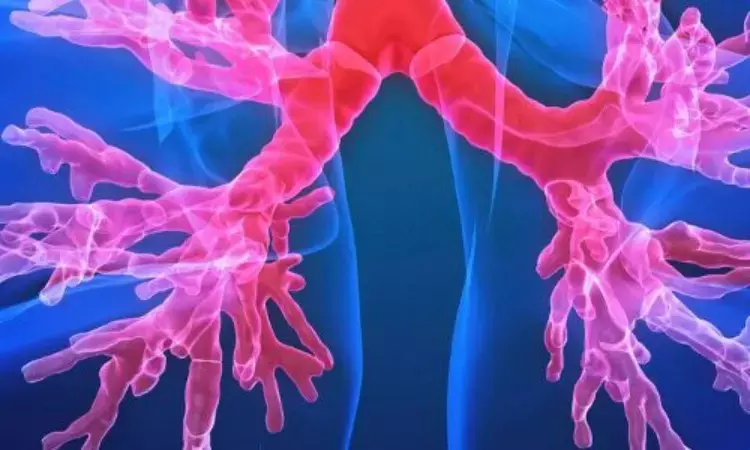- Home
- Medical news & Guidelines
- Anesthesiology
- Cardiology and CTVS
- Critical Care
- Dentistry
- Dermatology
- Diabetes and Endocrinology
- ENT
- Gastroenterology
- Medicine
- Nephrology
- Neurology
- Obstretics-Gynaecology
- Oncology
- Ophthalmology
- Orthopaedics
- Pediatrics-Neonatology
- Psychiatry
- Pulmonology
- Radiology
- Surgery
- Urology
- Laboratory Medicine
- Diet
- Nursing
- Paramedical
- Physiotherapy
- Health news
- Fact Check
- Bone Health Fact Check
- Brain Health Fact Check
- Cancer Related Fact Check
- Child Care Fact Check
- Dental and oral health fact check
- Diabetes and metabolic health fact check
- Diet and Nutrition Fact Check
- Eye and ENT Care Fact Check
- Fitness fact check
- Gut health fact check
- Heart health fact check
- Kidney health fact check
- Medical education fact check
- Men's health fact check
- Respiratory fact check
- Skin and hair care fact check
- Vaccine and Immunization fact check
- Women's health fact check
- AYUSH
- State News
- Andaman and Nicobar Islands
- Andhra Pradesh
- Arunachal Pradesh
- Assam
- Bihar
- Chandigarh
- Chattisgarh
- Dadra and Nagar Haveli
- Daman and Diu
- Delhi
- Goa
- Gujarat
- Haryana
- Himachal Pradesh
- Jammu & Kashmir
- Jharkhand
- Karnataka
- Kerala
- Ladakh
- Lakshadweep
- Madhya Pradesh
- Maharashtra
- Manipur
- Meghalaya
- Mizoram
- Nagaland
- Odisha
- Puducherry
- Punjab
- Rajasthan
- Sikkim
- Tamil Nadu
- Telangana
- Tripura
- Uttar Pradesh
- Uttrakhand
- West Bengal
- Medical Education
- Industry
Symptoms Predict Exacerbation Risk in Bronchiectasis, Suggesting Expanded Role for Macrolide Therapy: Study Finds

Spain: A large international study led by Dr. Oriol Sibila and colleagues at the Hospital Clinic, University of Barcelona, has shown that the daily symptom burden in bronchiectasis patients is a strong independent predictor of future exacerbations.
The findings, published in The Lancet Respiratory Medicine, also suggest that long-term macrolide treatment could benefit patients with high symptom levels—even if they have not yet experienced frequent exacerbations.
Bronchiectasis, a chronic lung condition marked by abnormal airway widening and recurrent infections, is currently managed with long-term macrolide antibiotics only in patients who suffer three or more exacerbations per year, according to international guidelines. However, this new research indicates that focusing solely on past exacerbations may overlook a group of patients who remain at high risk due to their symptom profile.
The investigators drew on data from the European Multicentre Bronchiectasis Audit and Research Collaboration (EMBARC) registry, which included nearly 9,500 patients with available quality-of-life data at baseline and at least one year of follow-up. Using the Quality of Life-Bronchiectasis Respiratory Symptoms Score (QoL-B-RSS), they tracked how symptom severity related to outcomes.
Based on the study, the researchers reported the following findings:
- Every 10-point reduction in QoL-B-RSS scores increased the likelihood of a future exacerbation by 10%.
- Patients with few or no prior exacerbations but high symptom burden had a one-year exacerbation rate (1.55) nearly identical to those with frequent exacerbations and moderate symptoms (1.58).
- Symptom burden emerged as a strong marker of active disease and future risk.
- A pooled analysis of the BLESS, BAT, and EMBRACE trials (341 participants) showed that macrolide therapy reduced exacerbations in both frequent-exacerbator and highly symptomatic but low-exacerbation groups.
- The number needed to treat (NNT) was nearly identical in both groups—1.45 in frequent exacerbators versus 1.43 in highly symptomatic patients—indicating comparable benefit.
These findings challenge current treatment recommendations, which do not account for symptom severity when prescribing long-term macrolide therapy. According to the authors, integrating symptom assessment into treatment decisions could allow for earlier intervention, potentially preventing progression to the frequent-exacerbator stage. The approach mirrors strategies used in other airway diseases like asthma and COPD, where preventing exacerbations early is a key goal of care.
The study does carry limitations, including reliance on self-reported quality-of-life questionnaires, missing data within the registry, and the post-hoc nature of the macrolide trial analysis. Nevertheless, with participants drawn from 27 countries, the results appear broadly applicable and consistent across regions.
"Overall, the research highlights the need to reconsider treatment algorithms for bronchiectasis. Rather than focusing solely on past exacerbation frequency, clinicians may need to pay closer attention to patients with a heavy daily symptom burden, who appear to face equally high risks and derive significant benefit from preventative macrolide therapy," the authors concluded.
Reference:
Symptoms, risk of future exacerbations, and response to long-term macrolide treatment in bronchiectasis: an observational study. Sibila, Oriol et al. https://www.thelancet.com/journals/lanres/article/PIIS2213-2600(25)00160-2/fulltext
Dr Kamal Kant Kohli-MBBS, DTCD- a chest specialist with more than 30 years of practice and a flair for writing clinical articles, Dr Kamal Kant Kohli joined Medical Dialogues as a Chief Editor of Medical News. Besides writing articles, as an editor, he proofreads and verifies all the medical content published on Medical Dialogues including those coming from journals, studies,medical conferences,guidelines etc. Email: drkohli@medicaldialogues.in. Contact no. 011-43720751
Next Story


